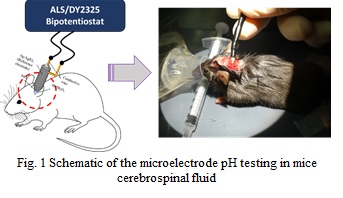
Ganesh Kumar Mani
Tokai University, Japan
Title: Microneedle bio-sensor: Direct, label-free, real time detection of pH in biological cells
Biography
Biography: Ganesh Kumar Mani
Abstract
Acid–base homeostasis and pH regulation inside the body is precisely controlled by kidney, lungs and buffer systems, because even a minor change from the normal value could severely affect many organs. Blood and Urine pH tests are common in day-to-day clinical trials without out much effort. Still, there is great demand for in vivo pH testing to understand more about body metabolism and to provide effective treatments during diagnosis. The detection of pH at the single-cell level is hoping for the great level of clinical importance for the early detection of many diseases like cancer, diabetes, etc. In this research work, we have fabricated a micro region pH sensors by series of processes like electrolytic polishing to create needle structure, deposition of electrode materials using RF magnetron sputtering for pH measurements and finally testing in various biological mediums. Working and reference electrodes were Ag/AgIO3 and Sb/Sb2O3 deposited on microneedles under optimized deposition parameters. The structural, elemental and morphological properties were analyzed using XRD, XPS, EDS and FE-SEM. The fabricated tip of the microneedle probe is around 5µm analyzed by FE-SEM which size is comparable with the biological cells. pH testing was initially begin with using fish egg and various biological cells. The obtained pH sensing results were adequate with theoretical values. Since the sensor works at micro region, the potential difference is easily disturbed by atmospheric anomalies. Hence, many steps have been taken to improve the stability of the sensor. Besides that, fabricated microneedle sensor ability is proved through in vivo testing in mice cerebrospinal fluid (CSF) and bladder. The pH sensor reported here is totally reversible and results were reproducible after several routine testing.


